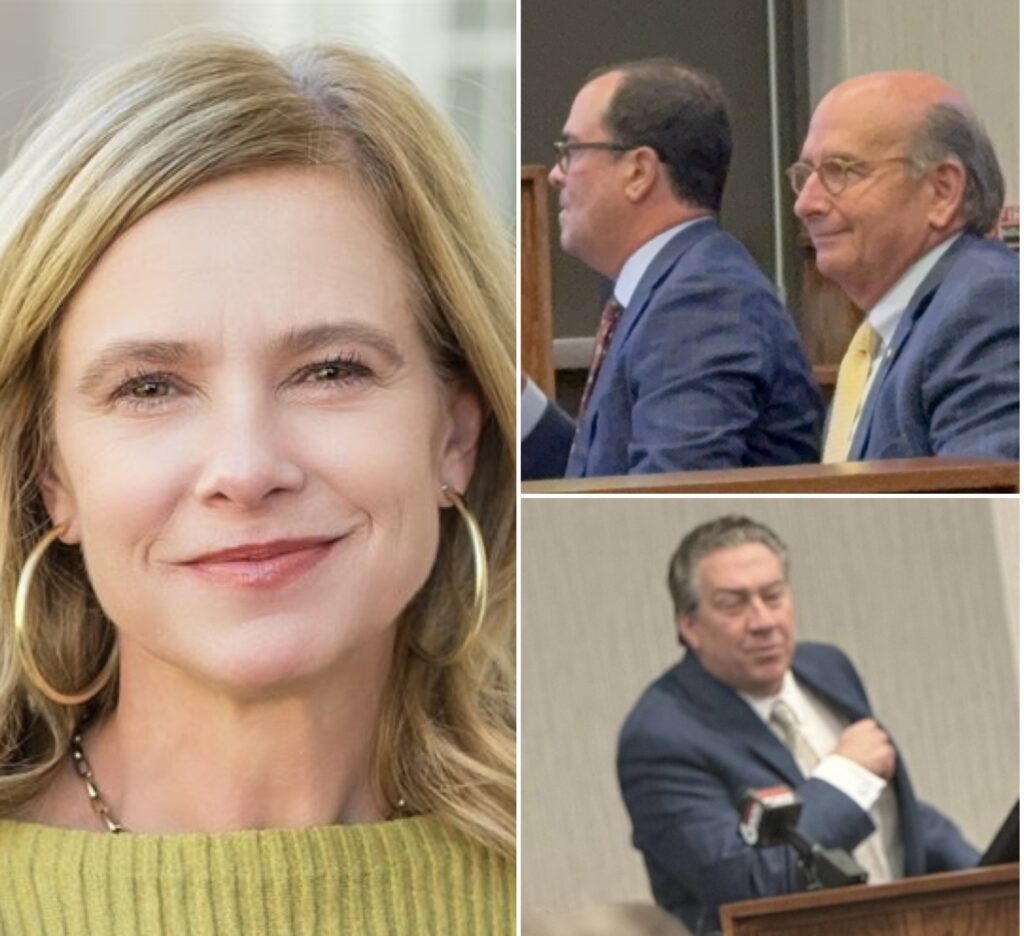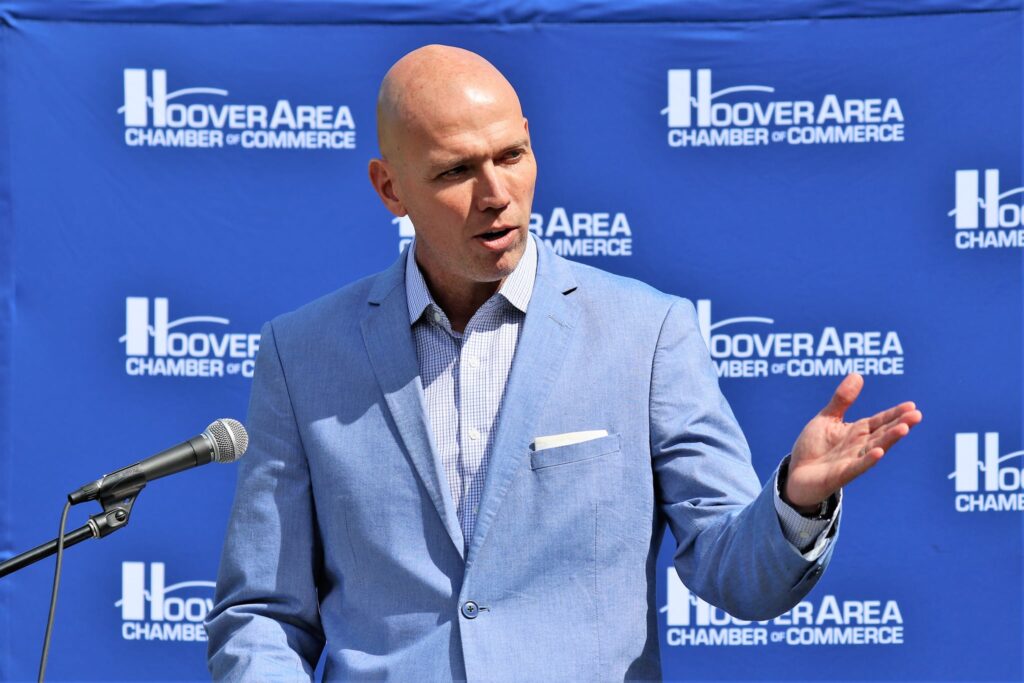Questions remain after Hoover CFO Jennifer Cornett reports on Finance Department corrective action plan

Last Monday, the City of Hoover held its regularly scheduled city council meeting, during which the city’s chief financial officer, Jennifer Cornett, spoke. In response to a request from Councilman Derrick Murphy, she presented an update and plan for remedying some of the concerns from the secretly commissioned forensic audit conducted by the nationally renowned firm Kroll. The presentation addressed some of the top issues but still left many questions. Residents have been asking these questions in earnest for months now at council meetings, as they’ve come across elected officials out locally and through petitions and phone calls. Yet, week after week, they’ve found that the mayor and council president rebuffs their concerns. Denying them answers or a venue to be provided answers. Three critical questions come to mind: first, why won’t city leadership create an open forum to address start to finish the legitimate questions that have been asked and ignored? This forum has been suggested not just by concerned residents but by Councilman Steve McClinton as well. Second, how can residents be sure these problems will be prevented in the future, not just in the Finance Department but also in other departments within the city? We know from the Kroll report and several former members of the council that the information was known to Hoover’s top, namely Mayor Frank Brocato and Council President John Lyda, yet worse than just being ignored, they were seemingly covered up and denied. Why did the checks and balances between the mayor’s office and the city council fail? How do voters prevent that failure in the future as well? Additionally, no one in the city has addressed the limitations described in the forensic audit, and if additional steps need to be taken to examine this administration and their financial dealings, departmental staffing beyond the Finance Department, and other issues brought to light through this process. Kroll described on Page 1 of their report, “In performing our forensic accounting and review and analysis of the Finance Department operations, we had certain limitations in our scope of review including a lack of accurate financial reports available from Munis and potentially thousands of electronic files that were deleted without any audit trail or definitive indication of who may have been responsible.” The Kroll report was 274 pages long. Cornett’s update included 7 PowerPoint slides. This leaves a lot of ground to be covered by city leadership, one would hope that would include those responsible. The sections in the Cornett report: Erroneous Financial Reporting Deleted, Missing and/or Destroyed Records Understaffed Finance Department Lack of Experience/Training in Payroll and General Ledger Division Lack of Training, Skills & Communication Lack of Formal Policies and Procedures MUNIS Accounting & Software Implementation Fluctuations in Finance Department Budget Budget Presentations Lack of Complete and Timely Reconciliations Unaddressed Payroll Issues Summary Cornett described four of the issues addressed in these sections as having been resolved through subsequent actions, marking them as “closed” in her presentation. Among the issues marked as “closed,” however, are the deletion of files that she and the mayor have said were reported to the State’s Attorney General. When asked, William Califf, a spokesman from Attorney General Steve Marshall’s office, said, “It is the longstanding policy of this office to neither confirm nor deny the possibility of an investigation.” The Hoover Channel, the local YouTube channel created by Robin Schultz and his grandson Jackson Schultz, loaded the video of her full update to its page as a part of its newest segment type, “The Week in Review.” You can also find within the description of the video all of the supporting and backup documents, including the detailed PowerPoint presentation that Cornett gave.
Apryl Marie Fogel: Hoover City Council President John Lyda’s Quarterback Fake

Here in Alabama, football is beloved; there’s nothing like an unexpected play in a big game, something like a quarterback fake—a play requiring skill and precision akin to a magician’s sleight of hand. But while deception entertains on the field or stage, it’s troubling in local politics. Hoover has been rocked of late by confounding admissions, accusations, and unanswered questions, dividing the city council and fracturing relationships. Some are unaware of the turmoil at City Hall, while others ponder the way forward. City leaders, led by Mayor Frank Bracoto and Council President John Lyda, have sought to downplay or ignore question upon question and issue upon issue. City Administrator Ken Grimes followed their lead earlier this week and responded to concerns posed by residents on Facebook. Though the story he was responding to provided video evidence of a direct quote by the CFO and statements made in sworn testimony by the mayor, Grimes called it “junk taken out of context.” He didn’t clarify whether it was the mayor’s comments or the CFO’s that he believed was junk or what additional context he thought was needed to understand why a lease was signed before the costs were known or why the mayor said under oath that he hadn’t read it. Observers agree that the unfolding saga is more complex than officials admit, and a resolution is unlikely unless transparency improves. Could these issues be a series of unintentional and unrelated fumbles? Perhaps, but why would those involved leave them lingering and unaddressed for so long? For several years now, Lyda, Brocato, and their supporters have treated nearly every inquiry of questionable behavior as mere distractions rather than cause for concern. Until now, different situations have been treated as one-offs rather than a pattern, but a clear pattern is emerging, and I’m here to lay it all out for you in story form. Why story form? While not exactly boring in these circumstances, the interworkings of city government aren’t particularly riveting either. The facts laid out here are just that: facts. They stem from dozens of interviews, reviewing dozens of media stories, council meeting videos (no thanks to the city), searching for documents buried in dense public meeting packages, and reviewing audio recordings of testimony from the sparsely attended recent hearings. The city itself has been…less than helpful. Buckle up for a true story told in parts to bring the many converging details together for the first time. This is, without a doubt, just the beginning. Chapter 1: Darkness Slowly But Steadily Descends on the Field Once upon a time, Hoover seemed to have a government guided by the conservative values of small government, fiscal responsibility, transparency, and accountability. However, as the city’s population, economy, and infrastructure grew, sunshine faded on the public information accessible to those who live, work, and do business there. I live in neighboring Birmingham and heard the city was overwhelmingly conservative, so imagine my surprise when I learned that while the state was going forward, Hoover was going backward with public information. Around August 2021, city officials sparked controversy by deleting years of council meeting videos from their official YouTube channel without notice or explanation. When confronted, no one would take responsibility for the decision. The city attorney, Phillip Corley, told The Hoover Sun, “This was a council policy communicated by the council president to the city clerk.” The Sun asked follow-up questions about the conflicting information from the City Attorney and evidence of when the videos were discovered missing, and his questions were ignored. The move to limit the availability and coverage of videos prompted the launch of The Hoover Channel, a YouTube page with over 200 videos created by Robin Schultz. He and his teenage grandson, Jackson Schultz, maintain the site. Based on what I witnessed at the last council meeting, Jackson did the technical camera work while Robin sought answers and accountability from the council himself. After the meeting, Jackson hurried his grandfather along to help him pack up the bags of equipment they used. After the council was questioned about the deletions, Lyda informally polled the council members and formalized a new policy. The new one restricted the city’s livestream. It would now end before the public comments section of the meeting, and the city was now not only allowed to delete the videos after 60 days or after minutes had been approved but required to do so. I’ve talked to multiple people about this, and not one person can explain the positive benefit of deleting the videos for the city if there’s no liability related to what has been done or said. Corley, the city attorney, defended the council’s actions. I’m paraphrasing here, but he essentially said residents who want public meetings, made and kept public using equipment they’ve paid for, are ungrateful little curious cash cows for the city who are lucky to get any video at all and should take what he and the council decided behind closed doors to give them and shut up. Okay, I added a lot of color to that last part. His actual quote was, “He advised the city that state law does not require meetings to be videoed or livestreamed, or for recordings of meetings to be made or preserved.” It’s worth noting that Corley’s name comes up again at least twice in this sordid series of stories. First, when the city increases the outside attorney budget by $500,000, and then when the mysterious forensic audit becomes public. These moves and curious cleanup, some would say coverup, were just the beginning. Residents and other sources have pointed out that the meeting minutes of city council meeting have also undergone changes over the last several years. Descriptions of council actions have become incredibly vague, often omitting crucial details of pre-vote discussions and questions/answers relevant to future research, reporting, and glorious editorial storytelling. Remember that these half-baked minutes are all the city attorney says the law requires them to do. If he and Lyda had their way, you would not


